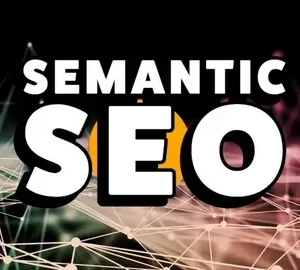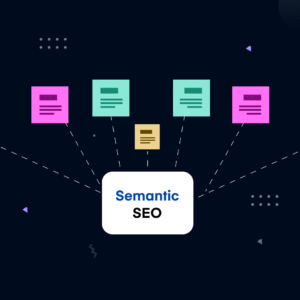Introduction
In today’s digital age, visibility is everything. Whether you’re a local Nottingham tradesperson, a retail boutique in Lace Market, or a growing agency in West Bridgford, showing up in search results when your audience is looking is vital. But SEO today isn’t just about stuffing keywords—it’s about meaning, context, and relevance.
Search Engine Optimization (SEO) in Nottingham demands a tailored approach—one that reflects the city’s unique neighborhoods, postcode zones, and local business culture. This is where semantic SEO plays a powerful role.

What Is Semantic SEO?
Semantic SEO focuses on building content that answers a user’s intent, not just their keywords. It understands that when someone searches for “SEO agency Nottingham NG7,” they’re not just asking for a company name—they want a provider near that location with expertise, local knowledge, and proven results.
Google and other search engines are evolving to understand this context. That’s why your content must reflect real local references, related topics, structured formats, and common user questions to perform well in Nottingham search results.

Why Semantic SEO Works for Local Nottingham Businesses
Semantic SEO isn’t a trend—it’s the natural evolution of how people search. Especially in a dynamic city like Nottingham, where digital engagement varies across neighborhoods, this approach ensures your business is found by the right audience at the right time.
Instead of targeting one or two keywords, semantic SEO helps you dominate a theme—like “SEO services for Nottingham cafés”—across multiple search formats including mobile, voice, and local map results. This creates more entry points for visitors, more qualified leads, and better long-term rankings.
The Nottingham Advantage
Nottingham has a unique digital landscape. With thriving business districts such as Lace Market, Sherwood, Beeston, and West Bridgford, as well as NG1 to NG16 postcode regions, local SEO needs to be customized. This means optimizing for local terminology, creating content that reflects neighborhood culture, and showing relevance across service areas.
Being specific about Nottingham-related entities like postcodes, landmarks, universities, events, and client stories makes your content more meaningful and relevant. That’s the semantic edge.
Core Elements of Semantic SEO for Nottingham Businesses
1. Topic Clustering and Content Architecture
Rather than writing isolated articles, semantic SEO begins by creating topic clusters. These consist of a main page (pillar) supported by multiple related subpages.
-
Pillar Page Example: “Search Engine Optimization Nottingham”
-
Supporting Pages:
-
“SEO for Cafés in Lace Market”
-
“Google Maps Optimization for West Bridgford Businesses”
-
“How Sherwood Retail Shops Can Improve Local Search Rankings”
-
“Why Beeston Plumbers Need Local SEO”
-
These clusters signal to Google that your site covers the topic in-depth and is an authoritative source.
2. Local Content Optimization
Local SEO relies heavily on your ability to connect with geographic intent. Embedding Nottingham-specific language into your content helps search engines make this association.
Examples:
-
Mention real districts (NG1–NG16)
-
Use references like “near Old Market Square,” or “close to Nottingham Trent University”
-
Incorporate case studies or testimonials with local clients
3. Semantic Keywords and Synonyms
Instead of repeating “SEO Nottingham” 30 times, semantic content uses related terms and synonyms:
- Local search optimization
- Google My Business SEO
- SEO for East Midlands companies
- Nottingham digital visibility
- Web presence for SMEs in Nottingham
This not only avoids keyword stuffing but builds a network of relevance that strengthens your search visibility.
4. Natural Language and User Intent
People no longer type exact-match keywords—they ask real questions:
- “How do I get my Nottingham café on Google Maps?”
- “Who are the top SEO agencies in NG5?”
- “Can I show up in local results for Lace Market?”
Semantic content anticipates these questions and answers them clearly. This is particularly important for voice search, which uses longer, more conversational phrasing.
5. Schema Markup and Structured Data
Implementing structured data like LocalBusiness, FAQ, Review, and Breadcrumb schema helps search engines understand what your page is about. This boosts your chances of showing up in rich results, map packs, and featured snippets.
Building Local Authority with Semantic SEO
1. Consistent Citations and NAP Data
Ensure that your business’s Name, Address, and Phone Number (NAP) are consistent across your website, Google Business Profile, and online directories. This builds trust and supports your local search rankings.
2. Google Business Profile Optimization
This is your digital storefront. Your GBP must include:
-
A complete and accurate business name
-
A physical Nottingham address
-
Service descriptions with relevant keywords
-
Photos, opening hours, and review replies
Your location (e.g., NG3 vs. NG9) affects your placement in search, so precision is key.
3. Local Reviews and Community Mentions
Search engines take review volume, rating quality, and frequency seriously. Encourage happy customers to leave Google reviews that mention your service area, like:
-
“CyberScudo UK helped my NG1 café grow online.”
-
“Their SEO work boosted our Beeston plumbing business.”
This builds relevance and credibility in local search.
Internal Linking: The Hidden Power of Semantic SEO
Every supporting page in your topic cluster should link back to the main pillar page and vice versa. For example:
-
A page about “SEO for Lace Market retailers” should link to the main “SEO Nottingham” page and to other related service pages.
This builds a web of content that reinforces topical authority and guides users through your site intuitively.
Answering Real Nottingham Questions
Semantic SEO shines when you anticipate and address real, location-based questions. Examples:
FAQs:
Q: How can I appear in Nottingham’s Google Local Pack?
A: Complete your Google Business Profile, collect reviews from customers in Nottingham, and create service-area pages for NG postcodes.
Q: Should I have a separate SEO page for Beeston or Sherwood?
A: Yes—if there’s search demand in those areas, creating localized content will help capture high-intent visitors.
Q: What’s the difference between local SEO and traditional SEO?
A: Local SEO focuses on geographic relevance (e.g. Nottingham), whereas traditional SEO targets national or global terms without specific locations.
Q: How long does SEO take in Nottingham?
A: Results vary by competition, but most businesses see traction in 3–6 months with consistent content and link building.
Semantic SEO Content Examples for Nottingham
Consider these real content ideas that support your semantic strategy:
-
“Why Nottingham SMEs Are Shifting Budgets to Local SEO”
-
“Case Study: How CyberScudo UK Helped a West Bridgford Florist Rank #1”
-
“What Makes a Great SEO Page for NG1 Businesses?”
-
“5 Local Events in Nottingham Where Businesses Can Build Links”
-
“The Ultimate SEO Audit Checklist for Nottingham Entrepreneurs”
Each of these is packed with real local context and industry-specific insights—two pillars of semantic optimization.
Structuring Your Site for Semantic SEO
Your website’s architecture influences how easily search engines can index and understand your content. Structure your Nottingham SEO site like this:
-
Home
-
About
-
Services
-
SEO Nottingham (pillar)
-
SEO for Sherwood Retail
-
Beeston SEO for Tradespeople
-
Lace Market Google Profile Help
-
-
-
Blog
-
10 Questions Nottingham Businesses Ask About SEO
-
Local Link Building Strategies
-
Optimizing Mobile SEO for Nottingham Users
-
-
Contact
Clear internal navigation ensures users and search engines can connect your topics easily.
Tracking Semantic SEO Performance
To evaluate whether your semantic content strategy is working, monitor:
-
Search queries that show local intent (e.g. “web design NG7”)
-
Organic traffic to your location-based service pages
-
Keyword rankings for Nottingham terms and variations
-
Local map pack visibility for business categories
-
Time on page and bounce rates—longer stays indicate value
Track metrics monthly and optimize based on performance.
Mobile & Voice Search Considerations
Most Nottingham users search via mobile. Your content must be optimized for mobile speed, navigation, and interaction. Use responsive design, compress images, and test regularly on multiple screen sizes.
For voice search, structure your content with:
-
Short, direct answers
-
Natural phrasing (“Where can I find an SEO agency in Nottingham?”)
-
FAQ schema for rich result eligibility
This improves your chances of being featured in voice responses or Google’s “People Also Ask” box.
Summary: Why Semantic SEO Matters More Than Ever
As search engines get smarter, simply stuffing “SEO Nottingham” into a page won’t work. Instead, creating content that explores related topics, answers real questions, and references local context is what sets high-ranking sites apart.
For businesses in Nottingham, semantic SEO helps you:
-
Build authority in your sector
-
Serve content that matches intent
-
Appear in local results and voice searches
-
Improve user experience
-
Strengthen your Google rankings with context-driven content
Why Choose CyberScudo UK
CyberScudo UK specializes in helping Nottingham-based businesses scale their visibility through search engine optimization that’s ethical, effective, and customized for local audiences.
We don’t just optimize for keywords—we optimize for meaning, trust, and conversions. Our strategies are built to support long-term rankings, not just short-term boosts.
Final Thought
Search Engine Optimization in Nottingham is evolving, and those who embrace semantic content will lead the pack. Whether you’re looking to dominate the map pack, appear in voice searches, or simply reach more customers in NG1 through NG16, the key lies in content that’s rich with intent, relevance, and locality.
If you’re ready to turn your website into a lead-generating, Google-friendly asset, get in touch with CyberScudo UK today.



